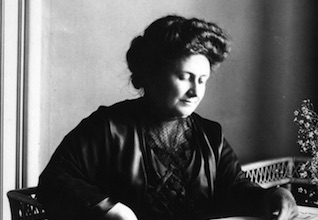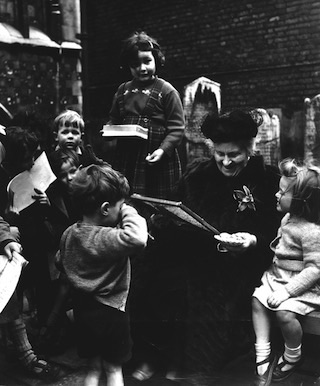Who was Maria Montessori?
Dr. Maria Montessori (1870-1952) was an Italian physician, educator, anthropologist, philosopher and visionary. She was the first Italian woman in to receive a medical degree. After practicing medicine for a number of years, Dr. Montessori returned to the university to study psychology, philosophy, and anthropology. She was a professor of anthropology at the University of Rome before she decided to focus on her passion: how children learn.
Dr. Montessori started a school for underprivileged children in the San Lorenzo district of Rome. Here she used her keen scientific observational skills to identify how the children seemed to absorb knowledge from their environment. She saw how the children never tired of manipulating materials, so she worked with a carpenter to create learning manipulatives that are found in Montessori classrooms around the world today. Each manipulative she designed and each lesson she created was based on what she observed the children doing naturally.
Dr. Montessori spent the rest of her life refining her methods, training other teachers in her methods, and furthering educational reform. She was an innovator who was ahead of her time. Today, the Montessori method is still regarded as one of the most innovative methodologies for educating young children. It is utilized throughout the world.
Because of Dr. Montessori's immeasurable contributions to the field of education, she was nominated for the Nobel Peace Prize three different times, in 1949, 1950, and 1951.

Maria Montessori

Dr. Maria Montessori in her element, 1951